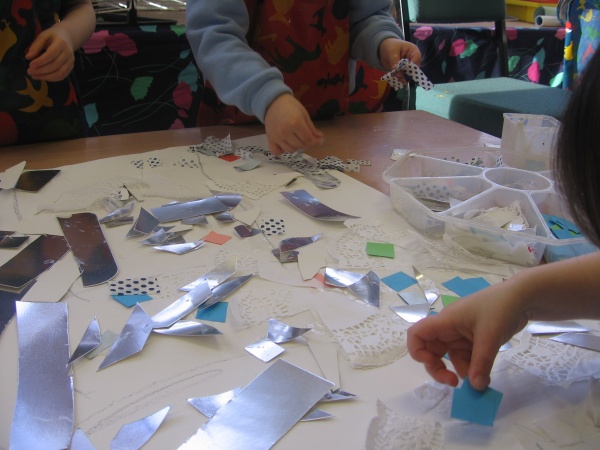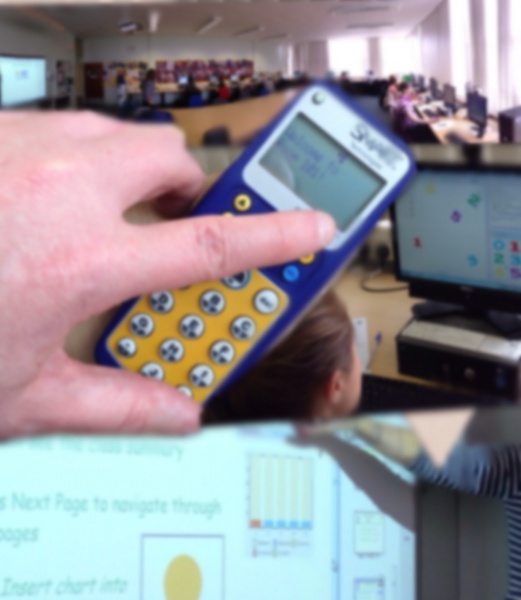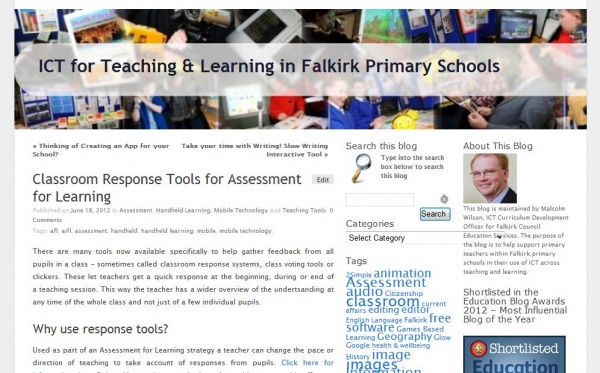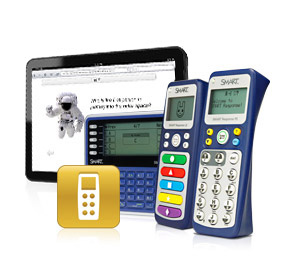![WP_20160620_006[1]](https://blogs.glowscotland.org.uk/fa/public/CurriculumSupport/uploads/sites/1906/2016/06/WP_20160620_0061.jpg) Pupils and staff at St Patrick’s RC PS in Denny have enjoyed hosting student teacher Marjorie Brewer from Chicago, USA. Marjorie arrived in Scotland in early May, and has been working with Victoria Daly’s primary 1 class, and Antoinette Irwin’s primary 5 class.
Pupils and staff at St Patrick’s RC PS in Denny have enjoyed hosting student teacher Marjorie Brewer from Chicago, USA. Marjorie arrived in Scotland in early May, and has been working with Victoria Daly’s primary 1 class, and Antoinette Irwin’s primary 5 class.
She feels she has benefitted a great deal from getting to know the Scottish school system, and from experiencing both primary stages, and being part of the wider life of the school.
Marjorie’s student teacher exchange placement at St Patrick’s RC PS was arranged between head teacher Anne O’Donnell, Yvonne McBlain, curriculum support officer, Falkirk Children’s Services, and Laura Stachowski, Director, Global Gateway for Teachers, Indiana University Bloomington. When Yvonne popped into school for a quick visit, primary 5 were enjoying a writing lesson led by Marjorie. She used a power point about her home city as a stimulus for the lesson, and adapted elements of Antionette’s practice to give pupils sufficient structure, but also room for personal freedom and creativity within their writing task. Pupils were responding well, by creating a diary of their imaginary visit to that city.
![WP_20160620_001[1]](https://blogs.glowscotland.org.uk/fa/public/CurriculumSupport/uploads/sites/1906/2016/06/WP_20160620_0011.jpg) Finlay in primary 5 feels that having a student teacher from another country has been “A new experience – a bit more fun.”. Emma B enjoyed learning about schooling in Chicago – “Miss Brewer did a big powerpoint to show us what it was like and gave us tasks to do…we learned about Will’s Tower and the schools she was in before here…they have different desks,… where they put their school bags,… they don’t wear uniforms…” and Sophie T said that Marjorie has taught them “strategies like Venn diagrams … when she needs quiet, she says “To infinity” and we shout “and BEYOND!”
Finlay in primary 5 feels that having a student teacher from another country has been “A new experience – a bit more fun.”. Emma B enjoyed learning about schooling in Chicago – “Miss Brewer did a big powerpoint to show us what it was like and gave us tasks to do…we learned about Will’s Tower and the schools she was in before here…they have different desks,… where they put their school bags,… they don’t wear uniforms…” and Sophie T said that Marjorie has taught them “strategies like Venn diagrams … when she needs quiet, she says “To infinity” and we shout “and BEYOND!”
Antionette said “It’s been a super experience. Listening and hearing about other methodologies and the ways that things are structured in America has had the kids fascinated. It’s not that different, but it’s nice for them to hear how children of the same age learn.”
Marjorie has been made very welcome by her ” homestay mom” Morag Duff, learning support teacher at St Patrick’s. Morag took Marjorie to see some of our local sights, and Marjorie will continue her travels once her placement at St Patrick’s RC PS ends. Marjorie has been keeping her own blog about her experience – click here to view.

![WP_20160620_002[1]](https://blogs.glowscotland.org.uk/fa/public/CurriculumSupport/uploads/sites/1906/2016/06/WP_20160620_0021.jpg)




 Smart Response tools
Smart Response tools

